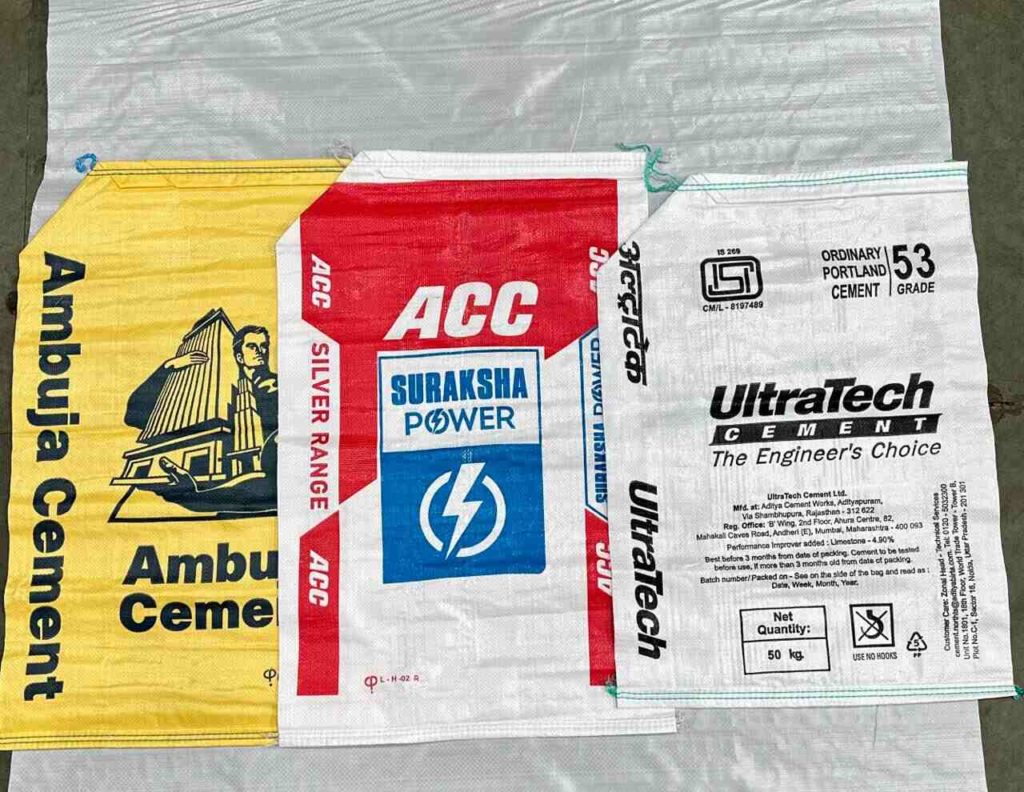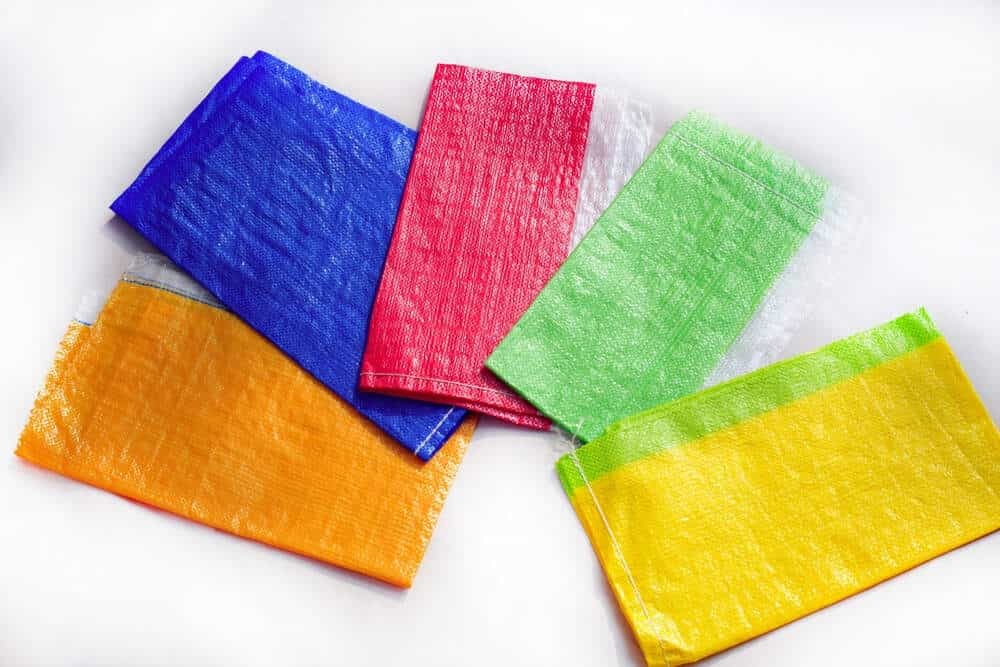Woven bags have become a vital component in various industries, offering a durable and cost-effective solution for packaging and transportation needs. These bags, primarily made from polypropylene (PP), are known for their strength, versatility, and eco-friendly nature. However, to maximize their potential, customization is key. By tailoring woven bags to specific industry requirements, businesses can ensure better performance, brand representation, and efficiency. In this guide, we’ll explore customizing woven bags for various industries, their benefits, and the factors to consider when making your selection.
Understanding Woven Bags and Their Applications
Woven bags, especially PP woven sacks, are an excellent choice for industries that require heavy-duty packaging solutions. These bags are created by weaving polypropylene threads together to form a sturdy and lightweight fabric that can hold a wide range of products. Woven bags are typically used in industries such as agriculture, construction, chemicals, and food processing due to their flexibility and high strength-to-weight ratio.

Customizing woven bags offers businesses the opportunity to meet their specific packaging needs. Whether it’s for transportation, storage, or marketing purposes, customization can enhance the utility of woven bags and provide a professional appearance that aligns with the company’s branding goals.
The Importance of Customizing Woven Bags
Customizing woven bags allows businesses to tailor the packaging solution to their exact specifications. Whether it’s adjusting the size, adding unique closures, or printing logos and designs, customization helps businesses:
- Enhance brand recognition: By printing logos, company names, or product details, businesses can use woven bags as a branding tool.
- Improve product protection: Specific customization options like additional coatings or lining can enhance the protective qualities of woven bags for sensitive products.
- Optimize functionality: Custom features such as gussets, handles, or specific dimensions can make handling easier and improve the packaging’s performance.
- Increase sustainability: Eco-friendly options for customization ensure that the bags meet environmental standards, which is essential for businesses with a focus on sustainability.
Key Industries That Benefit from Customizing Woven Bags
Several industries can benefit from customizing woven bags. Below, we will explore how different sectors use these bags and the customization options available for each industry.
1. Agriculture and Farming
In the agricultural sector, woven bags are commonly used for packaging grains, seeds, fertilizers, and produce. These bags need to be durable enough to withstand heavy weights and outdoor conditions, including moisture and sunlight. Customizing woven bags for agricultural use often includes:
- UV Protection: UV-resistant coatings can be applied to the woven fabric to prevent degradation when exposed to sunlight. This is crucial for items that need to be stored outdoors for extended periods.
- Ventilation: Agricultural products like grains, seeds, and vegetables often require ventilation to prevent spoilage. Customization can include adding breathable mesh or perforated designs to allow airflow.
- Size and Strength: The bags can be customized in terms of size and weight capacity to handle large quantities of produce or seeds, ensuring easy storage and transport.
2. Food Processing
In food processing, woven bags are used to pack grains, sugar, flour, rice, and other food items. Hygiene and safety are top priorities in this industry, so the customization options for woven bags are focused on maintaining product integrity and ensuring cleanliness.
- Food-Grade Materials: Custom woven bags can be made from food-grade polypropylene to ensure they are safe for storing edible products.
- Custom Printing: Printing product information, such as nutritional facts, expiry dates, or certifications, on the bags helps ensure compliance with food safety regulations.
- Sealing and Closure: Customized woven bags can feature secure sealing mechanisms, such as drawstrings or heat seals, to prevent contamination and keep products fresh.
3. Construction and Building Materials
Construction companies use woven bags for packaging cement, sand, gravel, and other bulk materials. Customizing these bags for the construction industry typically focuses on durability, load-bearing capacity, and ease of handling.
- Extra Strength and Reinforcement: Woven bags used for construction often require reinforced stitching or double-layered fabrics to handle heavy loads.
- Weather Resistance: Customized bags can be treated with coatings to protect against water and weather conditions, ensuring that the materials inside stay dry and intact during transport.
- Labeling: Large bags used in construction are often customized with bold, clear labeling for easy identification of the material being transported.
4. Chemicals and Hazardous Materials
The chemical industry requires packaging that ensures safety and compliance with regulations. Custom woven bags are essential for safely transporting and storing chemicals, fertilizers, and other hazardous materials.
- Antistatic Properties: Woven bags for the chemical industry can be customized with antistatic properties to prevent sparks and reduce the risk of fire.
- Leak-Proof Linings: For hazardous substances, additional plastic or polyethylene linings can be added inside the bags to prevent leakage and contamination.
- Tamper-Evident Features: Custom woven bags can also include tamper-evident seals or closures, which are important for ensuring product safety and traceability.
5. Retail and Consumer Goods
Woven bags are also used for packaging retail products, such as clothing, household goods, and textiles. In this sector, customization focuses on creating attractive packaging that draws consumer attention while ensuring the bags are functional and durable.
- Branding and Design: Companies can use woven bags as a marketing tool by printing logos, images, or taglines on the bags, which helps in building brand awareness.
- Colors and Patterns: Retail businesses often customize woven bags with various colors and patterns to match their brand identity and create visually appealing packaging.
- Handles and Closure Options: Woven bags for retail may include custom handles, zippers, or Velcro closures to enhance usability and convenience.
Factors to Consider When Customizing Woven Bags
When choosing to customize woven bags, there are several important factors to consider to ensure that the final product meets the industry’s specific needs.
1. Material and Durability
The material of the woven bag is crucial for its functionality. Polypropylene is the most commonly used material for woven bags, but businesses should consider factors such as:
- Strength: Ensure that the bag’s material is strong enough to handle the weight and nature of the product being packed.
- Weather Resistance: For outdoor storage or transport, UV resistance and water-proofing may be essential.
- Recyclability: For companies focusing on sustainability, consider using recyclable materials that can be reused after their initial purpose.
2. Size and Capacity
Different industries require bags of varying sizes and load capacities. It’s important to tailor the bag’s dimensions to fit the product being packaged. Oversized bags may lead to wasted space, while undersized bags can result in breakage or improper storage.
3. Safety and Compliance
For industries dealing with food, chemicals, or hazardous materials, compliance with safety regulations is essential. Ensure that customized woven bags meet all required certifications and safety standards.
4. Cost Considerations
Customizing woven bags often comes with additional costs, such as for specialized features or designs. It’s important to balance the customization with your budget while ensuring that the bags meet the functional requirements of your industry.
Conclusion
Customizing woven bags for specific industry needs is a strategic way for businesses to enhance their packaging solutions. Whether it’s improving product protection, reinforcing brand identity, or meeting safety and regulatory standards, customized woven bags provide significant benefits. By considering factors such as material, size, durability, and functionality, companies can choose the right customizations to maximize their efficiency and branding impact. The versatility of woven bags, combined with customization, ensures that businesses across various sectors can meet their specific needs while offering reliable, eco-friendly, and cost-effective packaging solutions.
